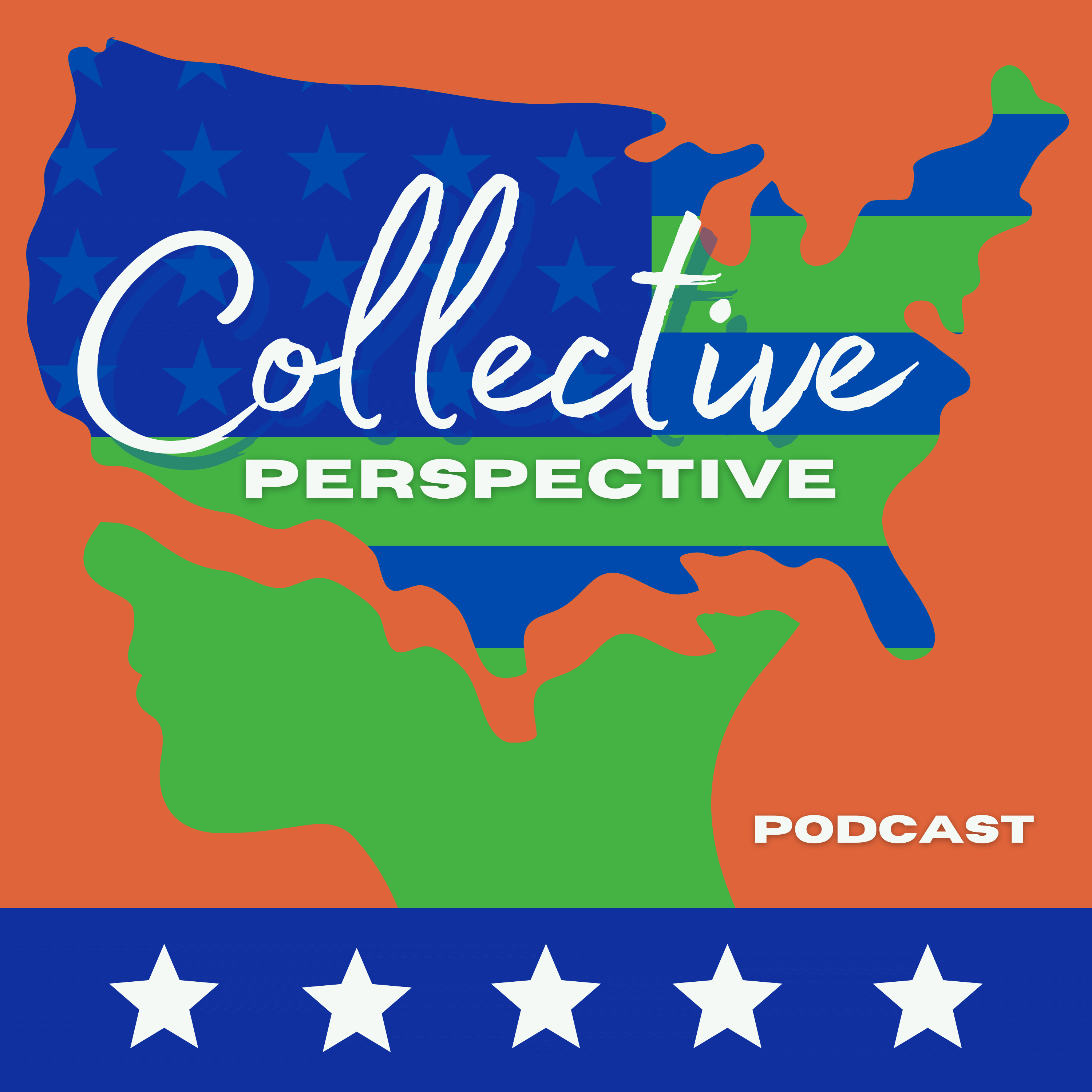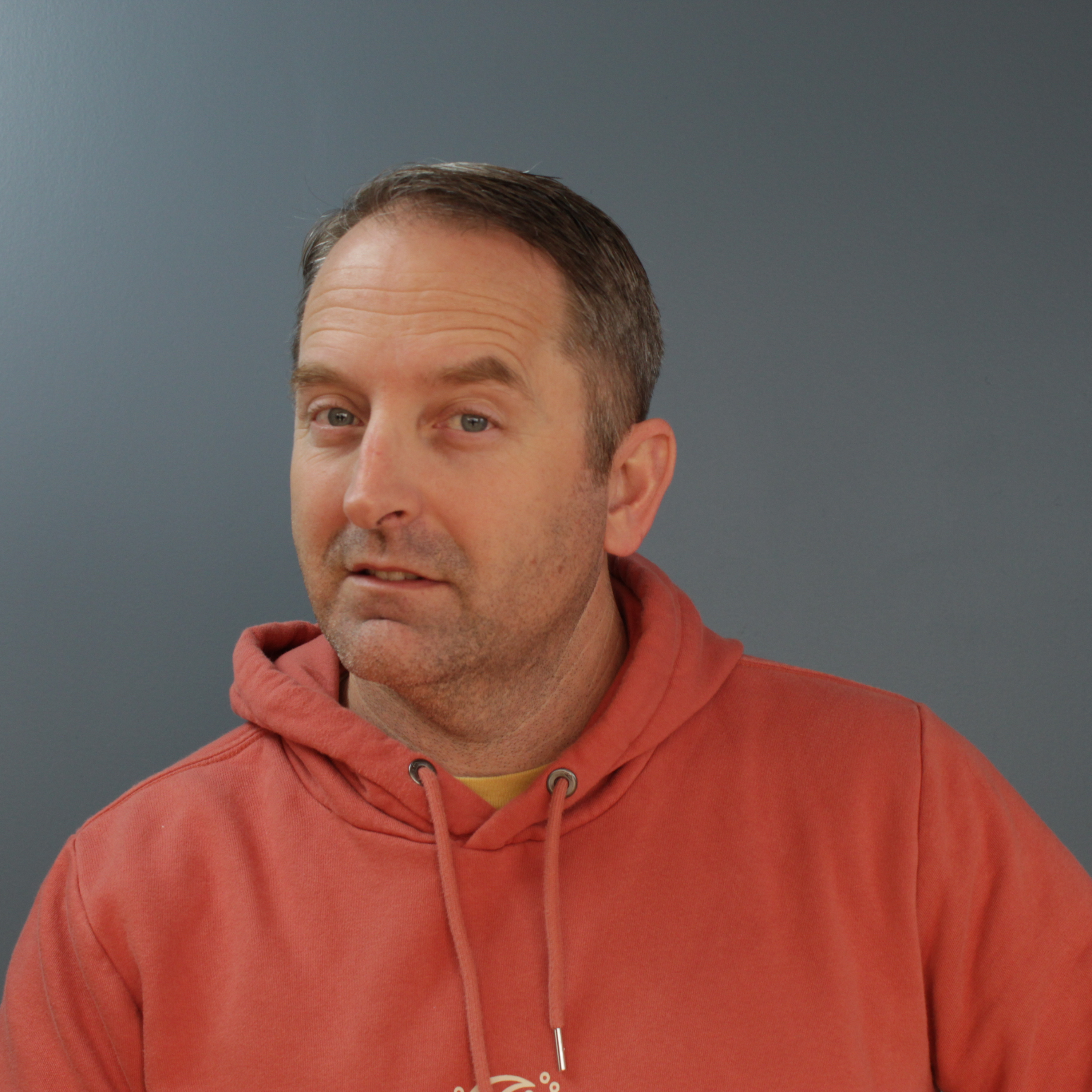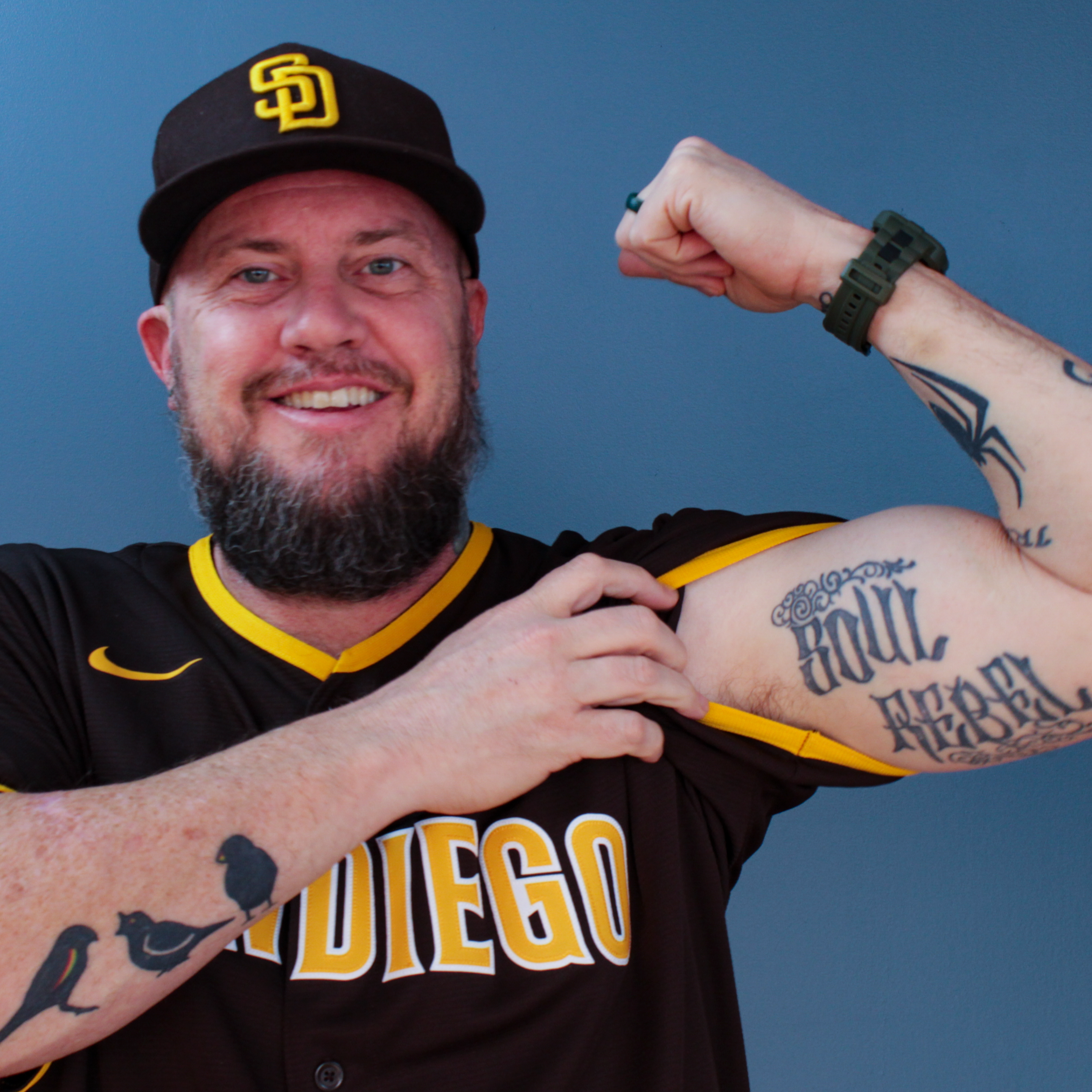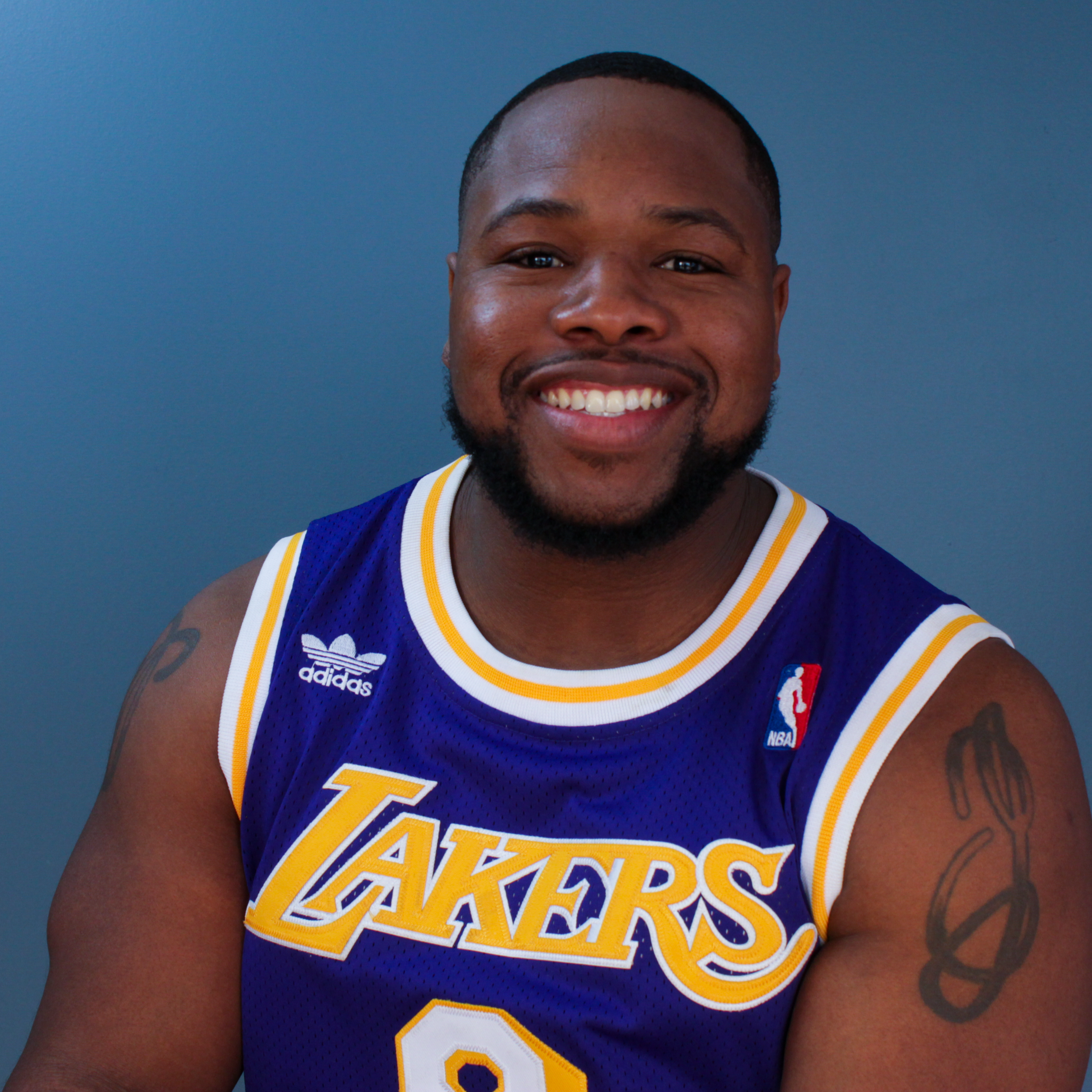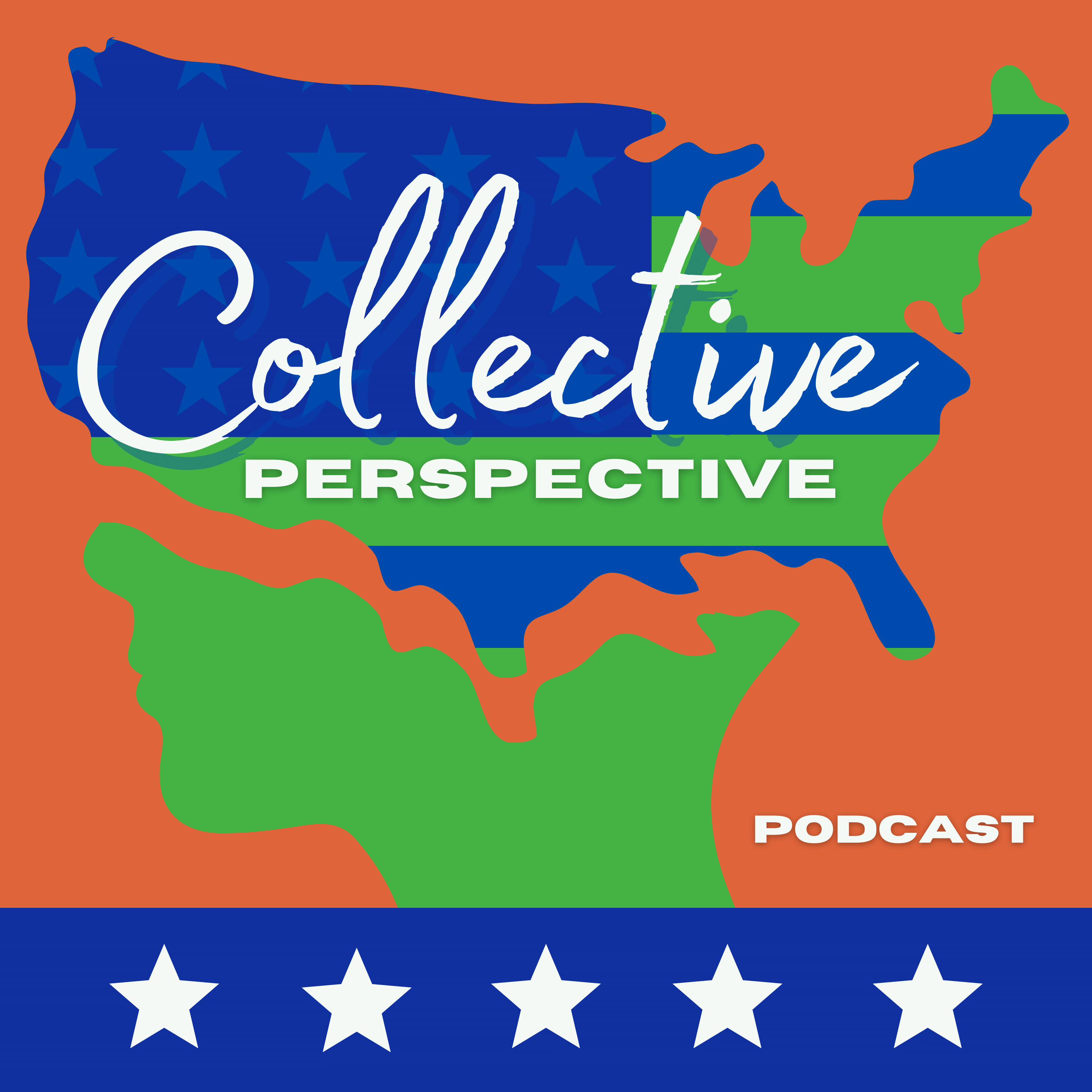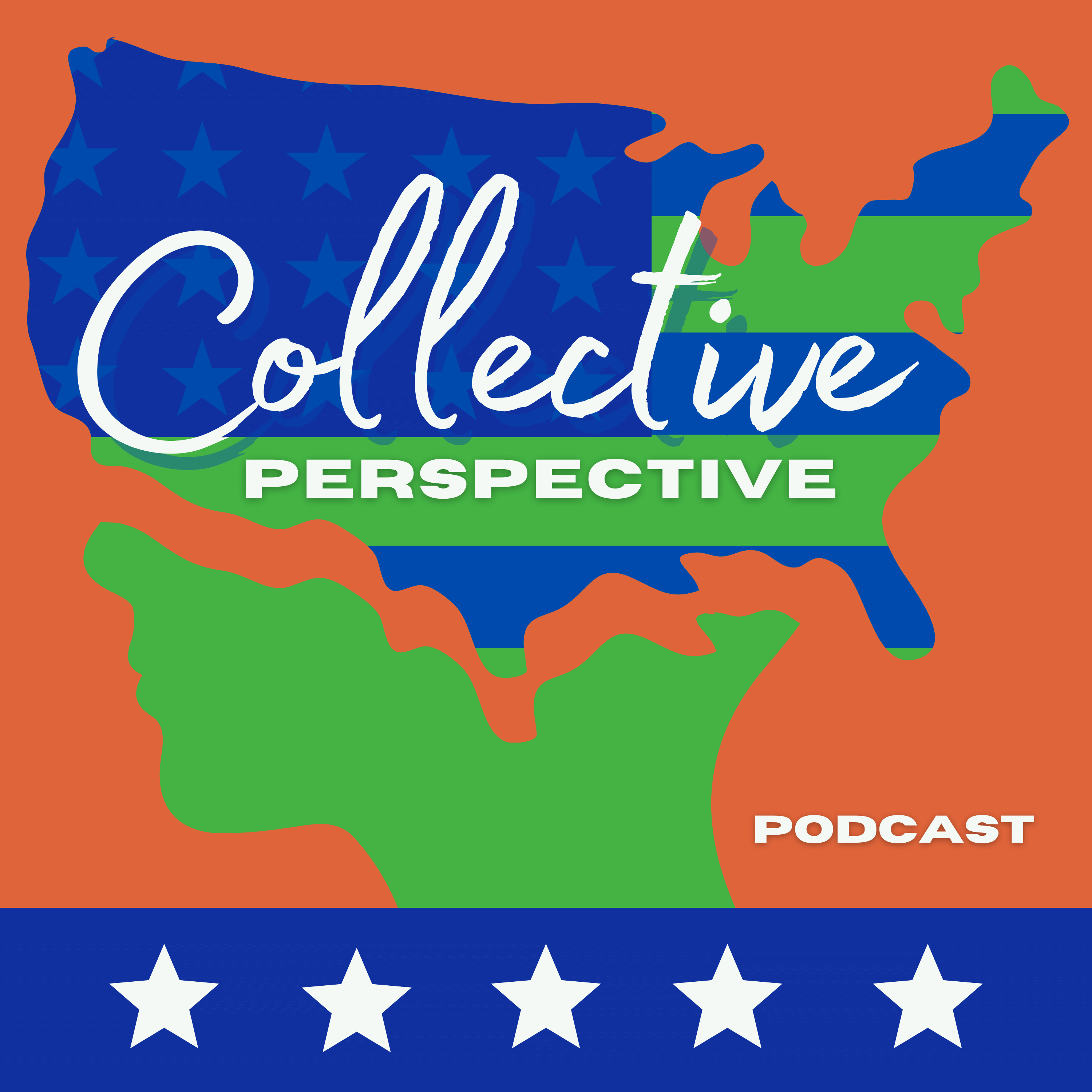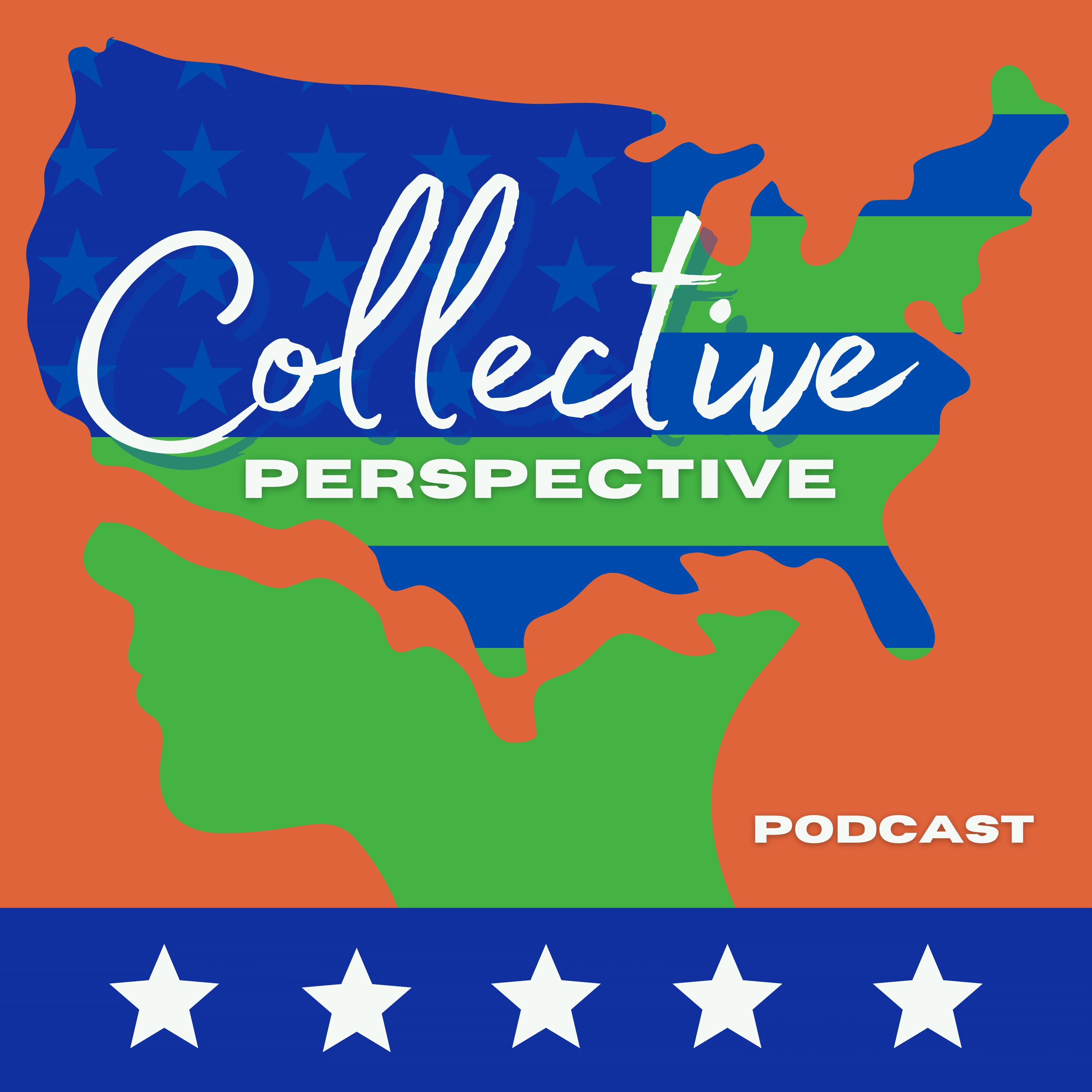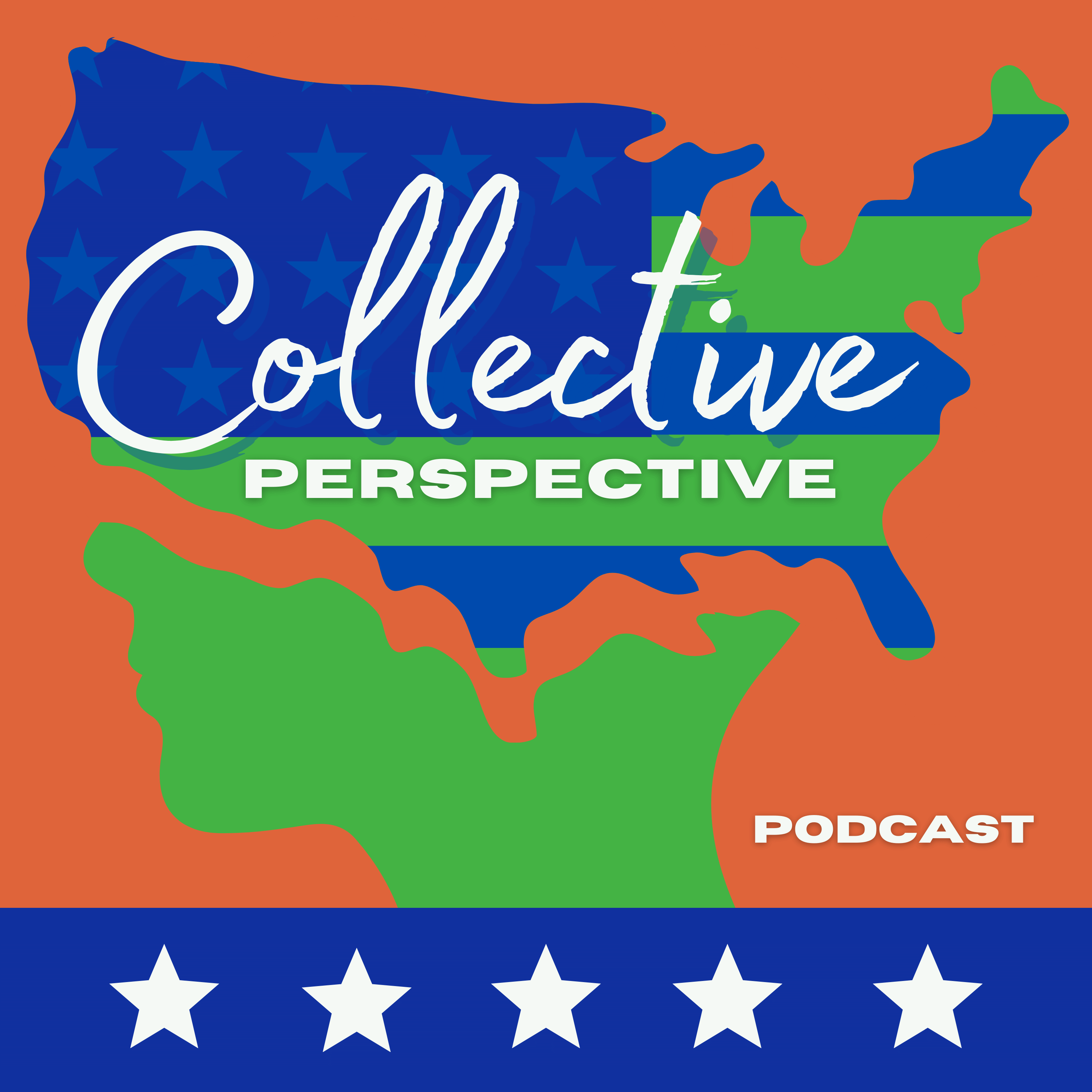Episode Transcript
Father, thank you for this time, for a chance to get to know these brothers better and just pray that you'd bless our conversation and give wisdom that comes from above. And um, thank you that we have your word revealed to us and that it is both without error and it is sufficient for life and godliness.
And let's pray that you'd bless this time in Jesus name, Amen. Amen. Welcome to a new season of the collective perspective podcast. As we dive into this season, we're focusing on the pivotal upcoming election widely considered as one of the most important of our lifetime. Join us on this journey as we navigate through diverse perspectives, dissect key issues, and explore the profound impact on our shared future.
Get ready for insightful discussions and thought provoking insights. Welcome to the collective perspective podcast. Season three.
Hey everybody, this is Jeff with The Collective Perspective and we're here today with my buddy Travis. Hello everybody, welcome to The Collective Perspective. Today we'd like to introduce Pastor Ben Wales. Pastor Ben, if you'd like to introduce yourself for us, give us a brief background. Sure, my name is Ben.
My name is Ben Wales, and I'm husband to Susie, father to Victor, Bastion, and Beacon. We live here in Jacksonville, Florida. Originally from Michigan, I did serve as a lay pastor there in Kalamazoo, Michigan. Now I'm a member at Shiloh Metropolitan Baptist Church, and I am, just in my life, I am a preacher.
Thanks for being part of this. The purpose of this podcast is, is that I think there's a lot of confusion on what the separation of church and state. A lot of people don't like the fact that. Religion is in politics not to still the thunder but I in Travis and I were talking about it before the show It's really a basis of where a lot of people's morals begin and those without morals I wouldn't want them making political decisions I could tell you through some personal things that I've gone through in my life recently I have grown closer to God myself and my son has to let me get a little emotional because Last night he said dad we forgot I'm like, what are you talking about?
He's like, we forgot to pray. I thought that was pretty special because here's an eight year old child that believes. I feel that my life would have been a lot different if I had believed at eight years old. There's a lot of things in this world, and I was telling my daughter this. I have an 18 year old daughter too.
I was telling her because she kind of looked at me when I walked in with a shirt that says, Want a taco about Jesus? Let us pray. And here I am. I think a lot of people don't show their faith, or it's seen as an action, and people talk their faith, but when you're actually branding yourself as a Christian, by having something godly or a cross or something like that, to me it's kind of changed my life in a sense, like I just bought a hat that's Yahweh.
My mindset is completely different when I wear this hat. I can't possibly go out and represent God. And be a jerk to people in public or road rage or being grumpy. I was telling my 18 year old daughter, I was like, look, there's a lot of evil things in this world, and Christianity isn't one of them, and the Bible isn't teaching you evil.
And then there's a lot of things in this world that are corrupt, and I just want to be on the good side of things and have a relationship with God. Because at the end of the day, if something does happen, I know where I'm going. Yeah, I kinda, I feel that about what you said with your son saying, hey, we forgot, you know, we didn't say our prayer.
I see it in society today, and even in my own household, I've never been big on going to church. Yes, I believe, but I never went to a place to express that belief. I can see it in my daughter. She feels that she's more atheist, uh, like, without God, or doesn't believe in it. I know where I went wrong by not expressing where I get my morals from to my kids more.
When my mom lived with us, she did, you know, read the Bible, and they did Bible study, and they would go to church on Sundays, but they were very young. That was when we were here in Jacksonville the last time, back in the early 2010s. I kind of blame myself for adding to the illusion that Christianity or believing in God is not as important as it is.
I do believe that it is important, and we do get a lot of our morals from the teachings in the Bible and from the apostles, you know, the lessons that were taught. Job is one of great suffering, so, you know, there's a lot that you can learn from the Bible that I didn't facilitate or make easier access for my kids to be able to grow in that kind of environment.
Jeff, I think one of the things you're, you're sort of touching on when you're talking about public life expressions of Christianity and how that is a little bit of a paradigm shift for you in how you think about yourself when you're wearing a hat that says Yahweh. And, and I think that that is right in line with the biblical concept of Christianity, and it relates to the topic today, which is the biblical concept of Christianity is a radical life transformation.
It is, it starts with a personal profession of faith and Jesus becomes your savior and Lord, but you are then a part of making all things new in the world. You have, you have cares about injustice. You have cares about what's right and wrong. You care about what's happening in the public sphere because you are an ambassador for Jesus Christ to bring his life giving power and you've been transformed by that.
You're bearing the fruit of the Spirit. And I think in this idea of church and state, I think that over the decades in the United States there has been a suppression of public expression of faith, largely due to a secularization. And the secularization says, All religion is fake. It presupposes that. And so it says, that's nice.
It's cute. It's quaint. It's cultural. Keep that at home. Keep that at church. Keep that in your heart. Just don't mention it anywhere else. We don't talk about religion. We don't talk about matters of faith. And in actuality, To be a follower of Jesus means to have a transformational, radical life change that is going to affect how you engage with every aspect of your life.
There's nothing untouched. I had a pastor today tell me that Jeff, the Jeff I knew 11 years ago wouldn't know the Jeff today. I probably would agree with that. Your filter is different. Totally. He said you've helped out so many more hundreds and thousands of churches, more than most people can possibly imagine.
I find my work doing audio, video, and lighting is advancing the kingdom of God. And when you see personal change over time to a point of not being recognizable over 11 years, that's a testament to God changing your heart and mind that manifests itself into a new life. I guess just start by saying that You know, it is not just a Western political idea, uh, to have quote unquote a separation of church and state, but you can go right to the Bible and you can go back to Jesus Christ, who people came to him and said, should we pay taxes to Caesar or not?
And He said, get me a coin. And, uh, whose face is on it? They said, well, Caesar's. And of course, they were trying to trap him. If you're familiar with the story, they wanted him to be in trouble with the Romans or in trouble with the people. He said, render to Caesar, the things that are Caesar's and to God, the things that are God's.
So he is making a clear distinction in spheres of influence and, and sovereignty. Even as he says, I'm Lord of all, he says, there is, there is Caesar who is instituted. to do certain things and there are certain things of God's which over which Caesar has no jurisdiction. I think you can find other examples of that going through in my, my Bible reading plan.
I, I read just a little bit of a go about Saul who had been appointed king and He then takes it upon himself to make the sacrifice he's not supposed to make the priest is supposed to make and God says through the Prophet the kingdom is going to be torn from you. You may be my anointed king to rule this people But you don't get to decide how I'm worshipped.
And so I think there's a very a biblical pattern that says That the civic government has a role and a sphere and authority within that sphere, and, and then there is a sphere which is fear of the worship of God that is separate. I like what you just said that the spheres, the governments, I think that's where we're, we're heading in this discussion is what is it that's the purview of the government and then religion and how they do intertwine with each other eventually.
Yeah. Well, let me, if we want to start talking about Western politics and the United States, let's first maybe just outline what I think are two wrong views. Uh, which number one would be that the state should compel religion. And I think pretty much everyone in the U. S. today would be quick to say, hey, that's not right.
That is, uh, if you look throughout history, that happened all the time, and if you look around the world today, it happens, right? If you're in certain Islamic countries, if you're an inhabitant, you are not allowed to convert. It's against the law. If you're in North Korea, you want to believe what you want to believe?
You can't. It's against the law. And many Christians are persecuted throughout the world. You don't have to go very far back in history either to find pockets of Christianity that believe that, you know, wars in the Middle Ages about baptism between Catholics and Protestants, where there is belief that the state needs to enforce and force a religion upon people and a mode of belief and a mode of behavior.
That has been abandoned. I mean, there's no, you know, certainly in the United States, there's no element of the Protestant or Catholic Church that would hold to that at all. For one, it just goes against the clear practice and teaching of Jesus who didn't force belief. He went around, he taught, he reasoned, Paul reasoned in the synagogues.
There were even times when the disciples are like, hey, can we call down fire on those people for rejecting you? And Jesus is like, no, you know, he's always, he's holding out, he's offering, but he is not, there is no force. And in fact, even the message of the gospel is all on the Lord and receive his grace and mercy by faith.
we can just recognize that you can't compel that. So, and so even if you were to compel Christianity, anyone would recognize you aren't really compelling it. You know, you, you're maybe forcing some modes of morality, but you can't, you can't force faith. So, um, It's a wrong view. It's, it's, I believe a wrong view to believe that.
The other wrong view would be that the practice of religion has no presence in the public sphere. And that, I think that gets kind of to the heart of people today being quick to say, well, hey, separation of church and state, you know, you can't have, you know, Any kind of public prayer, or you shouldn't be talking about that.
You know, that's for church time. Before we think biblically, I mean, just in the U. S., that is, that is a misunderstanding. I mean, that is a, the, the, the foundation of the U. S. was from a largely religious group. Different, different religions. Not all were Christians. Not all have the same beliefs. But, they, they, many were fleeing.
religious persecution. And so what was important to them was establishing a system of government in which they would guarantee that the government would not inhibit their free expression of religion. Okay, so much inspiration, so little time. Upgrade your audio video production with Mix Theory Studios.
From ads and podcasts to original music, create amazing content that helps build your brand and improve customer engagement. Our recording suites, services, and membership give you the freedom to collaborate, innovate, and create like never before. Mix Theory Studios is a music and multimedia studio production company located in downtown Jacksonville.
We at The Collective Perspective can relate to that as This podcast would not exist without MTS Jaxx, and we are so grateful for them. They can get you from the bottom of just thinking about the process of your podcast to publishing. Visit mixedtheorystudios. com today to learn more.
The research I've found, and this may just be summarizing what you said, but. Is that the reason why there's a separation of church and state is to protect religion. It is to protect the government from saying you have to, this is what you have to teach. This is the part of the Bible that you have to teach.
You're restricted from teaching this part of the Bible. Doesn't allow the government to dictate what you, what you believe. You know, Thomas Jefferson, prior to becoming president, He was the governor of Virginia. At that time, they passed a Virginia state law bringing clarity to this idea of religious freedom.
And I just wrote it down right here. It said, be it therefore enacted by the General Assembly, this is the General Assembly of Virginia, that no man shall be compelled to frequent or support any religious worship, place, or ministry whatsoever, nor shall be enforced, restrained, molested, or burdened in his body or goods.
Nor shall otherwise suffer on account of his religious opinions or belief, but that all men shall be free to profess and by argument to maintain their opinions in matters of religion, and that the same shall in no wise diminish, enlarge, or affect their civil capacities. Which, according to that view, that says if you're the governor of the state of Virginia, you should absolutely be professing and arguing matters of religion, and that that doesn't affect your capacity as governor.
Um, that is not true. Not establishing a system that is forcing anything on anyone, that is you exercising your freedom of religion, um, and being a part of this big project of diversity, unity by the people freely expressing their religion in the public life. That right there, what you just said, goes to one of those inalienable rights.
Your right to choose whichever way you want to go. Believe in this faith, or that faith, or no faith. the government can't say, you have to do this. That's exactly what that's saying. I thought it'd be interesting to read, for those that don't know, that the separation of church and state isn't in the Constitution.
It's the letter between Thomas Jefferson and the Danbury Baptist Association in 1801. To Thomas Jefferson Esquire, the President of the United States of America, Among the many millions in America and Europe who rejoice in your election to office, we embrace the first opportunity which we have enjoyed in our collective capacity since your inauguration.
To express our greatest satisfaction in your appointment to the Chief Magistracy in the United States. And though our mode of expression may be less courtly and pompous than what many others clothe their addresses with, We beg you, sir, to believe that none are more sincere. Our sentiments are uniformly on the side of religious liberty, that religion is at all times and places a matter between God and individuals, that no man ought to suffer a name, person, or effects on account of his religious opinions, that the legitimate power of civil government extends no further than to punish the man who works ill to his neighbor.
sir. But sir, our constitution of government is not specific. Our Antient Charter, together with the laws made coincident therewith, were adopted as the basis of our government at the time of our revolution. And such had been our laws and usages, and such still are, that religion is considered as the first object of legislation.
And therefore, what religious privileges we enjoy, As a minor part of the state, we enjoy as favors granted, and not as inalienable rights. And these favors we receive at the expense of such degrading acknowledgements, as are inconsistent with the rights of free men. It is not to be wandered at, therefore.
If those who seek after power and gain under the pretense of government and religion should reproach their fellow men, should reproach their chief magistrate as an enemy of religion, law, and good order because he will not, dares not, assume the prerogative of Jehovah and make laws and govern the kingdom of Christ.
Sir, we are sensible that the President of the United States is not the national president. Legislator, and also sensible that the national government cannot destroy the laws of each state. But our hopes are strong that the sentiments of our beloved president, which have had such genial effect already, like the radiant beams of the sun, will shine and prevail through all these states and all the world till hierarchy and tyranny reigns supreme.
Sir, when we reflect on your past services and see a glow of philanthropy and goodwill shining forth in a course of more than 30 years, we have reason to believe that America's God has raised you up to fill the chair of state. Out of that goodwill, which he bears to the millions, Which you preside over.
May God strengthen you for the arduous task which providence and the voice of the people have called you to sustain and support you in your administration against all the predetermined opposition of those who wish to rise to wealth and importance on the poverty and subjection of the people. And may the Lord preserve you safe from every evil and bring you at last to his heavenly kingdom through Jesus Christ, our glorious mediator.
Signed, in behalf of the Association. So, Thomas Jefferson replied, Gentlemen, the affectionate sediments of esteem and pride Approbation as you are so good as to express towards me on behalf of the Danbury Baptist Association Give me the highest satisfaction. My duties dictate a faithful and zealous pursuit of the interests of my constituents and in proportion as they please are persuaded on my fidelity to those duties.
The discharge of them becomes more and more pleasing. Believing with you that religion is a matter which lies solely between man and his God, that he owes account to none other for his faith or his worship, that the legitimate powers of government reach actions only and not opinions. I contemplate with the sovereign reverence to the act of the whole American people Which declare that their legislature should make no law respecting and establishing of a religion.
Or prohibiting the free exercise, therefore. Thus building a wall of separation between church and state. Adhering to the expression of the supreme will of the nation on behalf of the right of the conscience. I shall see with secure satisfaction the progress of those settlements which tend to restore to man all his natural rights, convinced he has no natural right in opposition to his social duties.
I reciprocate your kind prayers for the protection and blessing of the common Father and Creator of man, and tend to you for yourselves and your religious association. Assurances of my high respect and esteem. Thomas Jefferson. I think what they were worried about was that no man ought to suffer in the name of their own religious beliefs.
Yeah, my understanding of that letter is that they were predominantly writing to make sure that the government was not going to be telling them what they had to preach and teach in the church. And Thomas Jefferson was affirming, yeah, you don't have to worry about that. You know, and that is the, that is the freedom.
That is the separation of church and state, that the, the state is, is guarded from interference, from control over freedom of religious thought and assembly and teaching. That the state is, exists to preserve and protect certain rights, and that outside of those rights, Outside of enforcing these basic laws, there is, there's freedom.
I think where a lot of people in today's society, they twist words around to meet their purpose, but most people will argue that separation of church and state is that there should be no religion in government, but Dollar says in God we trust and there's multiple things that reference God. Well, you can't escape the Constitution Declaration of Independence that say we're here to somewhere and that we're following natural law, natural law giver, and that there are certain inalienable rights that are given to us by a creator that we've been endowed with.
and we're recognizing them. We're not voting to say what's a right or not a right. We're saying that the Creator endows humans with rights, and we are recognizing them. And so there's, there's this element of religion at the very foundation. So to say that it can be not present at all is, I think, the second, you know, wrong view I was trying to articulate.
You know, one wrong view is state enforces religion. Second wrong view is that religion is to be completely absent and expelled from state life. And I would also, just to go back biblically, I mean, we kind of talked a little bit about the constitutional justification for that, but the Bible is filled with examples of Christians speaking Christian truth in a political context, you know, one of which would be Daniel.
Um, I marked it down. Uh, Daniel 4. 27, but, you know, Daniel's in a secular, in a secular government, he's speaking to the king, uh, he is working as a leader in the court of the king. But he says to Nebuchadnezzar, you know, Therefore, O king, let my counsel be acceptable to you. Break off your sins by practicing righteousness, and your iniquities by showing mercy to the oppressed, that there may perhaps be a lengthening of your prosperity.
So, I mean, there were, there were all kinds of other secular soothsayers and religious ones that followed Nebuchadnezzar's way of worship, but Daniel says, no, I'm taking this opportunity as a court official to speak the truth of God to the king. And you know, you see that in John the Baptist in his confrontation of Herod.
You see that in Paul when he's under arrest and he's tried in a Roman court and he, they come out to talk to him about whether he's innocent or guilty. And he's saying, Hey, this is an opportunity for me to tell you about the gospel of Jesus Christ. So there are manifold examples where the Gospel, or the truth of God, is not absent from engagement with state and civic life.
Why do you think people of influence are accepting Jesus Christ into their lives? I've noticed that I can name Kat Von D, Russell Brand, Bono. Even in the 2024 BET Awards, Will Smith is. referencing God in his song. Why do you think that is? Well, I don't think that anyone comes to the Son unless the Father draws him and he draws people in all positions, low and high.
So I think there are true conversions of music stars and poor people on the streets and in every case it's a Gift of God according to his sovereign plan of election that he he planned before the foundation of the world I also think there there can be An opportunism. Kanye. There can be and i'm no man's judge And not here to pick out the names of who may be a true convert or not.
But I think there can be a sort of a seeking for purpose that bounces from one thing to another. And today, let's try Christianity. I think it can also be using it to try to access a different market. Hey, if I make a gospel album, will I pick up Snoop Dogg. Some new fans. And um, it's not to be just a cynic about that but, but I do think you know there is a purposelessness to pursuing worldly fame and wealth and having your identity be only in that, that, that, that.
I think could make someone of high position very ripe to be ready to receive the gospel. And when that happens, I say, hey, that's God's doing planned before the foundation of the world. One of the things that is kind of faux pas in church, I would say multiple churches, is that they don't bring up politics in church.
I think that kind of even goes to, you don't bring up politics at Thanksgiving dinner either. How has politics divided society? I think over the last number of decades, the politicization of society has gone toward polls. And you know, that's one major factor has been media, just the absolute content increase that, you know, you go from a generation ago or 75 years ago, everyone watches the same nightly news.
And you're going to associate with a lot of people who think the same and who think differently even within your your town and context And the differences are not that great if you were to read the party platform of republicans and democrats in 1960 You probably would have difficulty identifying which was which if they were unlabeled instead you move to A, a 24 hour news cycle where you can continue to just hear stronger and stronger voices talking louder and louder in echo chambers and that really have to have more than news.
They have to be just constant commentary that are painting the other as the enemy, right? And so you just have this, this vast polarization. People are driven by fear. People are, they don't listen first and they are. They're largely being influenced and affiliated only by voices who are more extreme than themselves in a certain way that are sort of pushing and pulling them down that path.
I think all of that, you know, makes politics really divisive and something that even just bringing up can create a tension in the room. I think a lot of the politics that we talk about today are, they almost feel like they're designed to be divisive. Race, age, sex, gender, all of this stuff that people talk about in the political sphere.
And what we may need laws for, but in reality, it's, those are divisive topics. I think that if somebody were to come together and have a discussion with somebody on those specific topics without influence from the outside, they may come to an understanding and be like, okay, it's not that bad. It's just, it's, that's your belief.
I can't change, or I can give you my information to maybe, you know, inform your belief, or I may reinforce what you're already, what you already believe when it comes to tv and politics and news. I agree. This 24 hour cycle is hammering away at one thing. But what what I'm maybe coming to the realization now of is that they are a lot of a lot of places go on metrics.
What's getting the views and they will harp on that and they'll stay on that topic because people are watching it and it's, it is influencing people's behavior because they talk about it nonstop over and over until some, until they start losing the viewers, they stop getting the metrics, they're not getting the ad revenue, they're not getting the stuff coming into them.
that says this is the topic we need to hammer on. And then something happens that they can't keep people from seeing on, say other news channels or someone mentioning it passing by that now they have to shift the topic and how can they shift it? for lack of a better term, pander to their base, and keep those views up, keep that interaction going.
Just to touch on, you mentioned the church. You know, I've been present before in churches where they say, we and they, and they mean, we're the Republicans and they're the Democrats. And I've been present in churches where they say, we and they, and they may not say it, but they mean, we're the Democrats and they're the Republicans, essentially.
And I think that is a misuse. I mean, the Church is the steward of the Gospel of Jesus Christ, and yet I do believe the Church has a responsibility to speak the truth of God's Word to the issues of the day. And that, in today's present day and age, that is going to offend people on all sides of the equation.
It must. Because, uh, The allegiance of the church is to, is not a party, and, and that's, that must also be true of the Christian. The, the allegiance needs to be the lion and the lamb, and the gospel of Jesus Christ, and what he, the radical transformation he wants to bring about in our lives that does have something to say about gender and morality.
And human life being made in the image of God and radical generosity to the poor and care for the oppressed and the marginalized and concern about justice and a humility to listen to the different experiences that others may have had. And when you put all those things together, you're going to talk some ways sometimes that are going to be offensive to some and some ways sometimes that are going to be offensive to others.
And that's a good thing because we all need to be brought back to submission to the Word of God as the primary authority over the life of the Christian. I don't think I've heard it that specific way. I think that to be A citizen of a country is to have responsibility, and that is especially true in a society with freedom, ability to participate, that is a gift from God.
Now that may mean you abstain in cases that, I'm not saying, I'm not someone who says like, Oh, you can't vote, or if you don't vote, you have no right to say anything. I think the Christian needs to recognize that everything is to be done to the glory of God, that their allegiance is to Jesus Christ and their life is shaped by his word.
And then they need to make the best decision they can in light of those realities. Someone might say, Oh, I'm abstaining because I couldn't vote for either person in this case. And, and then, or I'm going to vote this third party. And maybe they think they're getting a pass, but they know that in them doing that, that is helping.
You know, the person who eventually wins. I guess what I'm saying is, everything you do has moral responsibility. There's no, there's no escape. You are, as a Christian, you are accountable to God for your actions and inactions. And you have an awesome responsibility to, through the counsel of others, through the wisdom of his word, through prayer, to follow your conscience.
and keep your allegiance to Jesus Christ, recognizing that there's no hope in a political party, that God may very well bring about his good purposes for his kingdom through a wicked ruler. And you need not despair. You don't need to be anxious about anything, but in everything, you can present your request to God and with thanksgiving, submit yourself to his will and be his agent of hope, peace, joy, and seek to impact.
Your community and your nation and the world around you for his glory through your voting music Influences my life a lot and something you said in there Reminded me of a great song by Rush You can choose not to decide but you still have made a choice Kind of one of those things that no matter what we do there are implications whether we think we're abstaining to avoid the ramifications, but even that abstinence will still have its own consequences.
Sorry, I'm, I'm a music guy. Movies and music, man. I, I, I relate a lot of things to that. Maybe that's where I went wrong. I think, yeah, I think the biggest question is where is your allegiance? Where is your hope? And if, if you are gonna wake up on election morning and have your emotions, attitudes, outlook be controlled by what happened, you need a healthy dose of the Bible to remind you that the United States is a blip.
not even a blip on the radar of God's sovereign plan throughout the ages, and that the hope of the Christian is eternity with God and the lordship of Jesus Christ overall, and that God works out everything for good, uh, for his people. And so you need not fear nor despair, but be active, be involved. In light of the season that we're in, we are in a voting season now basically, we've got all kinds of political ads everywhere, we're being inundated on the news, social media, I'm seeing all kinds of stuff everywhere, how should Christians approach voting in light of their faith?
Well, I think the primary consideration is that Christians are to be people of the book. They are. They are formed. They are governed by the Word of God. That is the authority in their life, and that needs to be their allegiance. Not a party, not a platform, not a personality. And now Christians are going to disagree, but I think if your authority is the Word of God, there are going to be some issues where you are going to be on the more conservative sides of things and some where you're going to be on the more liberal sides of things.
But I think the most important thing for every Christian is that they have personally said, the authority for me is not the party my family's always voted, but the authority for me is the Word of God. And I'm going to prayerfully choose the candidate that I think makes sense. And they may be choosing between the worst of two evils.
They may go to the polls in grief, trying to decide who's wrong. I just think the important thing for them is to vote their conscience, but in alignment with the Word of God, as best as they can decide. I tend to agree with, no, I not tend to, I do agree with that, that we will sometimes agree with one side, say more liberal side, and many times, well, sometimes, for me it's many times, I'll tend to agree more on the conservative side.
But more importantly, I think it is, more importantly, I think I would, I agree with the one that has similar morals, core values, and beliefs, and I think it can be difficult to separate a person's voting habits from their personal moral beliefs. I, I think that once someone gets into office, They have to try to appease everyone, which, as we all know, that's nearly impossible.
Sticking to your morals and voting, I think the candidates that will vote on their moral grounds, moral, with their moral compass, will probably have a better chance at winning an election, in my opinion. That could be, I think, one of the challenges of politics. Sometimes one of the reasons why serious Christians eschew it is because Politics, almost by definition, means compromise and getting deals done and sometimes making compromise on very important issues.
I think we all could have the criticism of many candidates we've seen in our lives across the spectrum of being lackeys for donors, for party platforms, for saying one thing, doing another, for saying one thing but changing their conviction. Those are all really difficult issues in politics, you know, and people are trying to broaden the base.
I think for the Christian, they have to say, you know what? At the end of the day, it does not matter. Who's in the white house does not matter. Who's in the governor's office. Does not matter who my Senator is or my Congressman is. Those things do matter. They matter profoundly. Elections matter, but. But ultimately, they do not.
God sits on his throne, he rules over all, he raises up, he puts down, and to him belong all the kingdoms of the earth, all things happen in his time, the heart of the king is like a watercourse in God's hand, and the Christian needs to prayerfully, in submission to the Bible, do the best they can to make the best decision for the question at hand, and then trust God and be anxious for nothing.
That's, I think that's a good point that really a lot of it is out of our hands and we can make the best decisions for ourselves at that time or for our community in which we live at that time. I think the next part I was going to say is, I think it would be refreshing to hear a politician say, you know, this is what I believe.
However, The constituents from my area really feel strongly about this and I may not agree with what they wish, but I'm here to vote and to pass legislation that represents the people that elected me or that I will represent. And I think that's really hard to do for people to separate themselves from what their constituents are once they get into office.
I also think that what you're suggesting, I think, is really, could be a really good thing for considerations that are, you know, that are not highly significant. I mean, there are, when there are big issues on the table, I think you, you can't legitimately separate. And that's, you know, that's been the argument of some, Hey, I'm personally opposed, but I'm for freedom.
I think it doesn't take very long to say, Hey, I'm personally opposed to burglary, but I'm for freedom to burgle. I mean, it just takes When we talk about big issues, it's such a dividing line that you have to say, Hey, this is right or this is wrong. This is, this will devastate a nation or this will uplift the nation.
This is pleasing in the sight of God, or this is not. I think some of the biggest moral issues that our nation faces I think that's where the candidate, because again, we're talking about voting here, I think that's where the candidate would have to really do some deep thought introspection, revert back their morals, their Bible, and where they get their foundation from and say, all right, this based on this, this, and this is wrong.
I can't, I can't agree with what they're doing there. And I really feel that that's probably the biggest part of many of us want to hear is. Yes, this is why I'm voting this way, and it's based on this, this, and this. If somebody can come and say, and persuade you, we don't want someone to be intimidated into voting a different way, but if they can persuade you with evidence and facts to say, alright, this is the way you should, this topic should be approached, I think that might be a little better way to say that.
What do you think? Yeah, you know, people change. People can be convinced. New information can be. We all acknowledge that we've changed in our lives. We've changed our opinions and beliefs. Our experiences have changed. I think we would give, I think, I think a voting base would give space to a politician that is experiencing some change.
Uh, I think what we all know we have seen is, uh, It's many times where candidates frame themselves in one way, but then actually, you know, live out a different way. I think just to get back to kind of what I was saying from the beginning, just to get specific, you know, I don't think it would be difficult to make a biblical case for the sanctity of marriage between one man and one woman, for the sanctity of human life from womb to tomb, fertilization to natural death.
For radical care for the poor and marginalized and also, I think, with special concerns for racial justice in our country. You start talking about those first two, you're going to be pegged conservative immediately. You start talking about the second two, you may be pegged liberal immediately. But those are all things that the Bible has a lot to say about.
I think as Christians, that we need to start there. And we may have disagreements about who's the best person to do something, how big the government should be. But if we can agree that the Bible is our authority, we actually have everything in common. Well, I think that kind of went along with practical tips for aligning voting choices with Christian values.
And again, that's getting back to your roots and following along with how you explained it there in the Pretty good. Hey everybody, thanks for listening. We encourage you, the listeners, to reflect on this discussion, talk it amongst your tribe, your family, your fellow Christians, and your non fellow Christians.
We need to be able to talk things out, and this should be a good starting point for that, and by all means, apply. What you've learned today in your own thoughts, in your own lives. Thanks, Pastor, for being part of this. My pleasure. Definitely appreciate it. Good word. Thanks. It's been great to be here.
Thanks. Would you like to close with a prayer? Father, I pray for our nation and we thank you for the country that we live in, for the freedoms that we have, for sacrifices that have been made. We know that it is not perfect and we need leaders. We know ultimately that leaders come from you. We just ask that you would have your way, that you would have sovereign control.
I pray that Christians would come together under the submission of your word to prayerfully seek to live out the righteous life. That you require look to you for everything and be anxious for nothing And I pray that there would be a unity where there might be division that there would be listening and peace And harmony as your people seek you together and trust you with all their heart jesus name.
Amen
